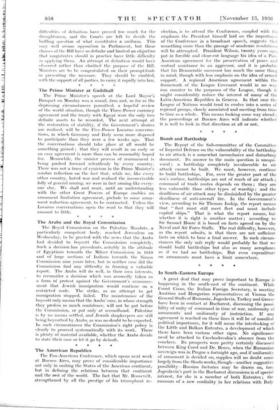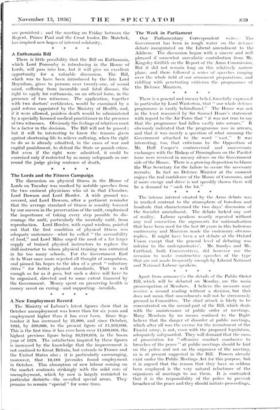In South-Eastern Europe A great deal that may prove important
to Europe is happening in the south-east of the continent. While Count Ciano, the Italian Foreign Secretary, is meeting Austrian and Hungarian representatives at Vienna the General Staffs of Rumania, Jugoslavia, Turkey and Greece have been in contact at Bucharest, discussing the possi- bility of unity of command in time of war, uniformity of armaments and uniformity of instruction. If any agreement is reached on these lines it will be of manifest political importance, for it will mean the interlocking of the Little and Balkan Ententes, a development of which there have been various other signs. No significance need be attached to Czechoslovakia's absence from the conclave. Its prospects were pretty certainly discussed between King Carol and Dr. Benes, when the Rumanian sovereign was in Prague a fortnight ago, and if uniformity of armament is decided on, supplies will no doubt come largely from the Skoda works, though—another suggestive possibility—Russian factories may be drawn on, too. Jugoslavia's part in the Bucharest discussions is of special _interest, for she is a member of both Ententes ; the rumours of a new cordiality in her relations with Italy are persistent ; and the meeting on Friday between the Regent, Prince Paul and the Croat leader, Dr. Matchek, has inspired new hopes of internal solidarity.
* *















































 Previous page
Previous page